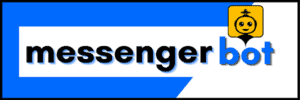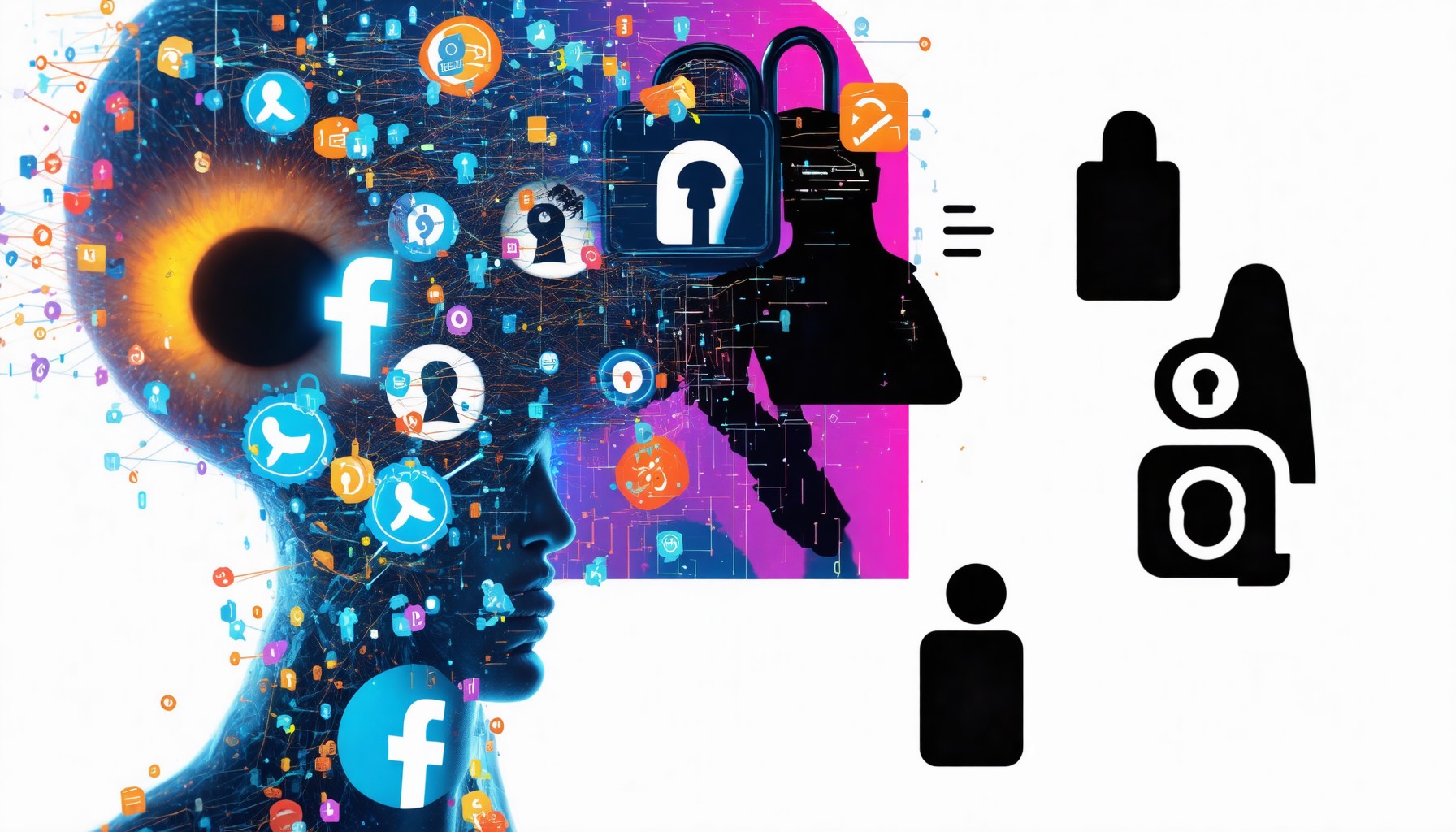Key Takeaways
- Understanding the legality of free Facebook bots is crucial; their use depends on compliance with platform policies and data protection laws.
- Utilizing a facebook messenger bot free can significantly reduce costs while enhancing customer service through 24/7 automated support.
- Identifying bot accounts on Facebook involves looking for unnatural behavior, generic profiles, and suspicious links.
- While free Facebook bots can improve user engagement, they may also pose risks such as compliance issues and variable service quality.
- Bot followers can damage your account’s reputation and engagement rates, emphasizing the need for organic growth strategies.
In the ever-evolving landscape of social media, the rise of automation has brought forth a fascinating yet complex tool: the facebook bot free. As businesses and individuals alike explore the potential of these bots, questions surrounding their legality, authenticity, and user safety become increasingly pertinent. This article delves into the critical aspects of free Facebook bots, addressing key concerns such as whether facebook bots are illegal, how to identify a bot on Facebook, and the real versus fake bot dilemma. We will also explore the functionalities of a facebook messenger bot free and the security risks associated with using these tools. By the end of this exploration, you will not only understand the implications of utilizing a free chat bot Facebook but also gain insights into managing bot followers effectively. Join us as we navigate the intricate world of free Facebook bots and uncover the truths behind their use and impact.
Are Facebook bots illegal?
The legality of Facebook bots is a nuanced topic. While there are no specific laws that outright ban the use of bots on platforms like Facebook, their legality largely depends on their purpose and how they are used. Here are key points to consider:
Understanding the legality of Facebook bots
- Types of Bots:
- Spam Bots: These are illegal as they violate anti-spam laws, such as the CAN-SPAM Act in the United States, which prohibits sending unsolicited commercial messages. Spam bots are designed to send bulk unsolicited messages, often leading to user annoyance and potential legal repercussions for the sender.
- Chatbots: Bots used for customer service, like Messenger Bots, are generally legal and can enhance user experience by providing instant responses to inquiries. However, they must comply with Facebook’s policies and guidelines to avoid being flagged or banned.
- Compliance with Platform Policies: Facebook has strict community standards and policies regarding the use of bots. Any bot that engages in deceptive practices, such as impersonating users or spreading misinformation, can be deemed illegal under these policies. Violations can result in account suspension or legal action.
- Data Privacy Regulations: Bots must also adhere to data protection laws, such as the General Data Protection Regulation (GDPR) in Europe, which governs how personal data is collected and processed. Failing to comply with these regulations can lead to significant fines and legal issues.
- Best Practices: To ensure legality, businesses should implement best practices when using bots, such as obtaining user consent, providing clear opt-out options, and ensuring transparency about the bot’s capabilities.
In summary, while not all bots on Facebook are illegal, their legality is contingent upon their function, compliance with platform policies, and adherence to relevant laws. For further information, refer to the Federal Trade Commission (FTC) guidelines on online advertising and the CAN-SPAM Act for spam regulations.
The implications of using a free Facebook bot
Using a free Facebook bot can offer numerous advantages, but it also comes with potential risks and implications that users should be aware of:
- Cost-Effective Solution: A free Facebook chat bot can significantly reduce operational costs for businesses by automating customer interactions and providing 24/7 support without the need for extensive human resources.
- Limited Features: While free bots can be beneficial, they often come with limitations in functionality compared to paid options. Users may find that certain advanced features, such as analytics or integration capabilities, are restricted.
- Compliance Risks: Free bots may not always adhere to the latest compliance standards, which can expose businesses to legal risks. It’s crucial to ensure that any bot used complies with Facebook’s policies and relevant data protection laws.
- Quality of Service: The effectiveness of a free bot can vary widely. Some may provide excellent service, while others may lead to user frustration due to poor performance or lack of updates.
In conclusion, while a free Facebook bot can enhance user engagement and streamline operations, it’s essential to weigh the benefits against potential risks and ensure compliance with all relevant regulations. For those looking to explore more about how to set up and utilize a Facebook Messenger bot effectively, check out our Messenger Bot Tutorials.

How to Tell if a Person is a Bot on Facebook?
Identifying whether a person is a bot on Facebook involves observing several key behaviors and characteristics. Here are the main indicators to consider:
- Unnatural Account Behavior: Bots often exhibit sudden spikes in activity, such as an abrupt increase in the number of likes, comments, or friend requests. If an account seems to engage excessively in a short period, it may be automated.
- Disproportionate Follow Ratios: A common sign of a bot is an account that follows a large number of users but has very few followers in return. This imbalance suggests that the account is not genuinely engaging with others.
- Generic Profile Information: Bots typically have incomplete or generic profiles. Look for accounts with no profile picture, a default avatar, or vague personal information that lacks detail.
- Repetitive or Irrelevant Comments: If an account frequently posts the same comment across multiple threads or engages in conversations that seem out of context, it may be a bot programmed to generate spam.
- Lack of Personal Interaction: Genuine users often share personal experiences or opinions. If an account’s posts are purely promotional or lack personal anecdotes, it could indicate bot activity.
- Suspicious Links: Bots often share links that lead to suspicious websites or phishing attempts. Be cautious of accounts that frequently post links without context or explanation.
- Engagement Patterns: Analyze the timing of posts. Bots may post at odd hours or with high frequency, unlike typical human behavior, which tends to vary throughout the day.
For further verification, you can report suspicious accounts to Facebook, which has systems in place to investigate and remove bots. Understanding these signs can help maintain a safer and more authentic social media experience.
Tools and Methods to Detect Bots on Facebook
Detecting bots on Facebook can be enhanced through various tools and methods. Here are some effective strategies:
- Bot Detection Tools: Utilize specialized software or browser extensions designed to identify bot accounts. These tools analyze user behavior and flag suspicious activity.
- Manual Inspection: Regularly review friend lists and interactions. Look for patterns that align with the characteristics mentioned earlier. This hands-on approach can help identify bots that automated tools might miss.
- Engagement Analysis: Monitor engagement metrics on posts. If certain accounts consistently generate high engagement without genuine interaction, they may be bots.
- Community Reporting: Encourage community members to report suspicious accounts. Collective vigilance can help identify and eliminate bot activity more effectively.
By employing these tools and methods, you can enhance your ability to discern between real users and bots, ensuring a more authentic Facebook experience. For those interested in automating interactions while maintaining genuine engagement, consider exploring options like a free Facebook chat bot to streamline communication.
Are Facebook Bots Real?
Facebook bots are indeed real and represent a significant aspect of the platform’s ecosystem. These bots are automated or semi-automated profiles designed to simulate human behavior, allowing them to interact with users, engage with content, and even send messages. Their purposes can vary widely, encompassing both beneficial and harmful activities.
The Difference Between Real and Fake Facebook Bots
Understanding the distinction between real and fake Facebook bots is essential for users navigating the platform. Here are the main types:
- Customer Support Bots: These bots assist users by answering frequently asked questions, providing information about products or services, and facilitating transactions. They enhance user experience by offering immediate responses.
- Spam Bots: These are often used for malicious purposes, such as spreading misinformation, promoting scams, or generating fake likes and comments to manipulate engagement metrics.
Common Misconceptions About Facebook Bots
There are several misconceptions surrounding Facebook bots that can lead to confusion:
- All Bots Are Malicious: While some bots are indeed harmful, many serve legitimate purposes, such as improving customer service and engagement.
- Bots Can Replace Human Interaction: Bots are designed to assist, not replace, human interaction. They can enhance communication but lack the emotional intelligence and understanding that humans provide.
What does a bot do on Facebook?
Facebook bots, also known as chatbots, are automated applications designed to interact with users on the Facebook Messenger platform. These bots can perform a variety of functions, enhancing user experience and providing services efficiently. Here are key aspects of what Facebook bots do:
- Automated Customer Support: Bots can handle common inquiries, providing instant responses to frequently asked questions, which improves customer satisfaction and reduces response time. According to a study by HubSpot, 71% of consumers prefer using chatbots for quick communication with brands.
- Personalized Recommendations: By analyzing user interactions and preferences, Facebook bots can offer tailored product suggestions, enhancing the shopping experience. Research from Salesforce indicates that 57% of consumers are willing to share personal data for personalized experiences.
- Lead Generation: Bots can engage users in conversations that qualify leads, collecting information and guiding potential customers through the sales funnel. A report from Drift shows that businesses using chatbots for lead generation see a 20% increase in conversion rates.
- Content Delivery: Bots can send updates, news, and promotional content directly to users, ensuring they stay informed about the latest offerings. This direct communication channel can significantly boost engagement rates.
- Integration with Other Services: Facebook bots can connect with various APIs and services, allowing users to book appointments, make reservations, or even order food directly through Messenger. This integration enhances functionality and user convenience.
- 24/7 Availability: Unlike human agents, bots can operate around the clock, providing assistance and information to users at any time, which is crucial for businesses with a global audience.
Functions and capabilities of a Facebook Messenger bot free
A free Facebook Messenger bot can significantly enhance user engagement and streamline communication. Here’s how:
- Cost-Effective Solutions: Utilizing a free Facebook chat bot allows businesses to implement automated solutions without upfront costs, making it accessible for startups and small enterprises.
- Enhanced User Interaction: With features like automated responses and personalized messaging, a facebook messenger bot free can create a more interactive experience for users, leading to higher satisfaction and retention rates.
- Easy Integration: These bots can be easily integrated into existing systems, allowing businesses to leverage their current platforms while enhancing functionality through automation.
- Analytics and Insights: Free bots often come with analytics tools that help businesses track user interactions and optimize their strategies based on real-time data.
How a free Facebook chat bot can enhance user experience
Implementing a free chat bot for Facebook can transform how businesses interact with their audience. Here are some ways it enhances user experience:
- Instant Communication: Users receive immediate responses to their inquiries, reducing wait times and improving overall satisfaction.
- Personalized Engagement: By utilizing data from user interactions, bots can tailor conversations, making users feel valued and understood.
- Streamlined Processes: Bots can automate repetitive tasks, allowing human agents to focus on more complex issues, thus improving service efficiency.
- Accessibility: With 24/7 availability, users can engage with businesses at their convenience, enhancing the overall experience.

Can Bots Steal Your Info?
Bots are automated software applications designed to perform specific tasks, and while they can serve beneficial purposes, they can also be exploited for malicious activities that threaten your personal information and online security. Understanding the risks associated with using a free Facebook bot is crucial for protecting your data.
Security Risks Associated with Using Free Facebook Bots
- Types of Malicious Bots:
- Data Scrapers: These bots extract sensitive information from websites, including personal data, email addresses, and financial details.
- Credential Stuffers: They use stolen username and password combinations to gain unauthorized access to user accounts.
- Spambots: These bots generate fake traffic, post spam comments, and can even manipulate social media engagement, leading to potential data breaches.
- How Bots Steal Information:
- Phishing Attacks: Bots can be programmed to send out phishing emails that appear legitimate, tricking users into providing personal information.
- Malware Distribution: Some bots deliver malware that can infiltrate devices, allowing hackers to access sensitive data.
- Session Hijacking: Bots can intercept user sessions on unsecured networks, capturing login credentials and personal information.
Protecting Your Information from Malicious Bots
- Use Strong Passwords: Implement complex passwords and change them regularly to reduce the risk of credential theft.
- Enable Two-Factor Authentication (2FA): This adds an extra layer of security, making it harder for bots to access your accounts.
- Regular Software Updates: Keeping your software and security systems updated helps protect against vulnerabilities that bots may exploit.
While bots can enhance user experience in various applications, such as customer service through Messenger Bots, they can also pose significant risks to your personal information. Understanding the types of bots and implementing robust security measures is essential to safeguard your data. For further reading on bot attacks and prevention strategies, refer to resources from cybersecurity experts like the Cybersecurity & Infrastructure Security Agency (CISA) and the Federal Trade Commission (FTC).
Do Bot Followers Ruin Your Account?
Bot followers can significantly harm your Facebook account and overall brand presence. Here’s a detailed analysis of the risks associated with having bot followers:
- Lack of Genuine Engagement: Bot followers, often referred to as “fake followers,” do not engage with your content. This lack of interaction can lead to a lower engagement rate, which is a critical metric for Facebook’s algorithm. Accounts with high engagement rates are more likely to be favored in search results and recommendations.
- Impact on Brand Reputation: Having a large number of bot followers can damage your brand’s credibility. Consumers are increasingly savvy and can easily identify accounts with inflated follower counts. A bot-heavy account may be perceived as inauthentic, which can deter potential customers.
- Reduced Reach: Facebook’s algorithm prioritizes content from accounts that have genuine interactions. If your account is filled with bot followers, your posts may not reach real users, limiting your potential audience. This can hinder your marketing efforts and reduce the effectiveness of your campaigns.
- Potential Account Suspension: Facebook actively works to remove fake accounts and bots. If your account is found to have a significant number of bot followers, it could be flagged or even suspended. This risk emphasizes the importance of maintaining a genuine community.
- Misleading Analytics: Bot followers skew your analytics, making it difficult to assess the true performance of your content. This can lead to misguided marketing strategies and budget allocations. Accurate data is essential for effective decision-making.
In conclusion, while some may consider bot followers as a quick way to boost numbers, the long-term consequences far outweigh any short-term benefits. Focusing on organic growth through authentic engagement is crucial for building a sustainable and reputable brand presence on Facebook.
Strategies to Manage and Mitigate Bot Follower Effects
To effectively manage and mitigate the effects of bot followers on your Facebook account, consider implementing the following strategies:
- Regular Audits: Conduct regular audits of your follower list to identify and remove bot accounts. Tools like Zapier can help automate this process.
- Engagement Focus: Shift your focus towards creating engaging content that resonates with your target audience. This will naturally attract real followers who are genuinely interested in your brand.
- Utilize Facebook Insights: Leverage Facebook Insights to monitor engagement metrics and identify patterns that indicate bot activity. This data can guide your content strategy.
- Promote Authentic Interactions: Encourage your followers to engage with your posts through questions, polls, and interactive content. This can help foster a community of genuine followers.
- Collaborate with Influencers: Partner with influencers who align with your brand values. Their authentic followers can help you reach a wider audience and enhance your credibility.
By implementing these strategies, you can protect your Facebook account from the negative impacts of bot followers and cultivate a more engaged and authentic community.
Exploring Free Bot Options for Facebook
When considering the landscape of free Facebook bots, it’s essential to understand the various options available and how they can enhance your social media strategy. From automated responses to lead generation, these tools can significantly streamline your engagement efforts.
Facebook Bot Free APK: What You Need to Know
The Facebook bot free APK is a downloadable application that allows users to create and manage their own bots on the Facebook platform. This option is particularly appealing for those looking to automate interactions without incurring costs. Here are some key points to consider:
- Ease of Use: Many free Facebook bot APKs come with user-friendly interfaces that require no coding skills, making it accessible for everyone.
- Features: These bots often include functionalities like automated messaging, comment moderation, and basic analytics, which can help improve user engagement.
- Limitations: While free options are beneficial, they may lack advanced features found in premium versions, such as comprehensive analytics or multilingual support.
For those interested in exploring more about creating a bot, you can check out this guide to set up your first AI chat bot quickly.
How to Make a Messenger Bot for Free and Earn Money with It
Creating a Messenger bot for free can be a lucrative venture if done correctly. Here’s a step-by-step approach:
- Choose a Platform: Select a bot-building platform that offers a free tier, such as Messenger Bot. This platform allows you to create a free Facebook chat bot with ease.
- Define Your Purpose: Determine what you want your bot to achieve. Whether it’s customer support, lead generation, or sales, having a clear goal will guide your bot’s design.
- Build Your Bot: Use the platform’s tools to create your bot. Incorporate features like automated responses and workflows to enhance user interaction.
- Monetization Strategies: Consider integrating e-commerce functionalities or affiliate marketing to generate revenue through your bot. You can also offer premium services for a fee.
By leveraging the capabilities of a free Facebook messenger bot, you can not only improve customer engagement but also create a potential revenue stream. For more insights on features, visit Messenger Bot Features.




